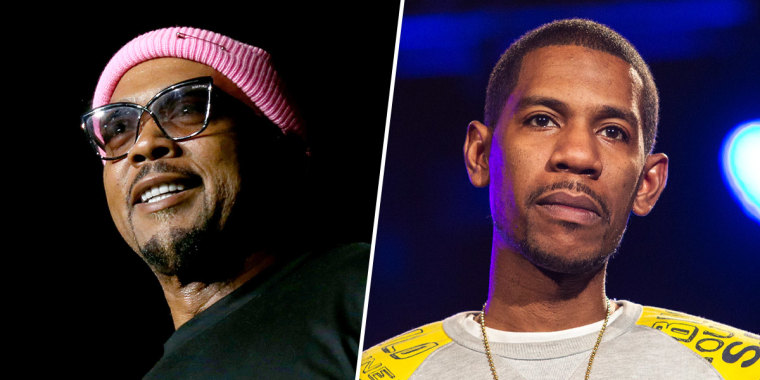Hip-hop artists are driving the music industry’s discussion about artificial intelligence and its implications for musicians, listeners and the industry as a whole.
This shouldn’t come as a complete surprise. Since its beginning, with DJ Kool Herc helping to revolutionize the record player into a tool for music-making, hip-hop has been intertwined with technology. And it’s arguably the genre most influenced by technology over the years. Tech developments have made DJ and production software widely accessible and ultrapowerful, vocal modulation tools have allowed the genre to branch off into new realms, and AI-dependent streaming platforms interpret listeners’ habits and, theoretically, feed them all the songs they’d like to hear at a moment’s notice.
Hip-hop is not an industry for all-out Luddites. But there's something to be said of how the ways in which technology factors into the creation and dissemination of this art form have always been a topic of debate. And there’s been a fascinating ethical and commercial discussion brewing among artists over whether and how emerging AI technology should be used.
Earlier this month, producer Timbaland debuted a song on social media featuring an AI-generated voice that sounded like the rapper Notorious B.I.G., who was fatally shot in 1997. Before introducing the song, Timbaland acknowledges in a post on Instagram that some people believe AI technology is responsible for “violating certain things” (like ethics, perhaps?), but he says he has a plan “that’s gonna be beneficial to everybody.”
Online backlash ultimately led him to announce he wouldn’t release the song without permission from B.I.G.’s estate. But in an interview published in Forbes last week, Timbaland said he still plans to promote the technology that can be used to create tracks featuring what sounds like the voices of deceased artists.
That too faced backlash.
Young Guru, the iconic record producer and sound engineer known for collaborating with everyone from Jay-Z to Missy Elliott, didn’t approve of the plans.
“@Timbaland I love you my brother. You know I do,” he wrote on his Instagram story May 18. “But this ain’t it!!! This is dangerous and at a basic level it’s corny!! I will be on the side of the luddites.”
Ironically, Young Guru isn’t a Luddite, at all. He’s one of the foremost technologists in the music industry and, through his work with the virtual reality-focused company Collimation, he’s been one of the leading voices discussing ways for musicians — particularly hip-hop artists — to capitalize on the so-called metaverse.

Rapper Ice Cube also waded into the AI discussion last week (although, unfortunately, on a right-wing podcast), calling AI “demonic” and saying, “Somebody can’t take your original voice and manipulate it without having to pay.”
I think malicious people — not "demonic" spirits — pose the greatest danger to society when it comes to AI. But my hope is that you're seeing, here, why the conversation around AI applications is so necessary!
This year's controversy surrounding the AI-generated “rapper” FN Meka, who reflected gross stereotypes, showed how exploitive and offensive the use of this technology in the music industry can get. And the conversation around AI-generated songs speaks to the same concerns about machines displacing artists.
Of course, these types of conversations — on what AI should be built to do, who should benefit from it and more — aren’t confined to music. But music is driving these conversations forward, and hip-hop is leading the charge.

